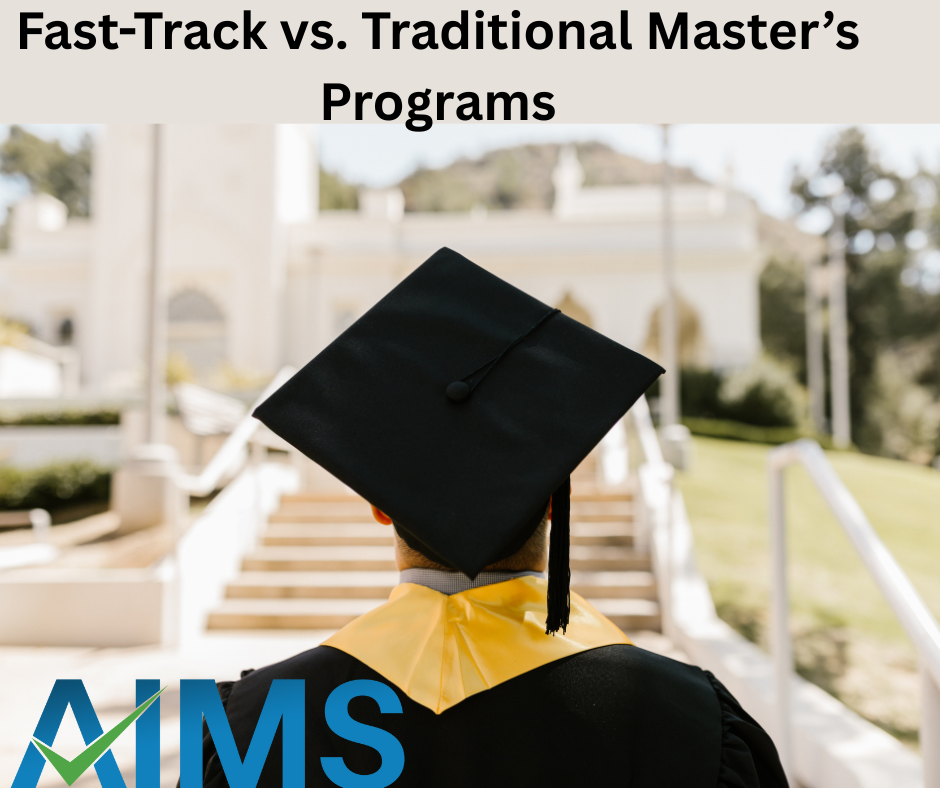With increased development in higher education, students are looking for adaptable and streamlined ways to reach their education and career aspirations. One of the emerging trends includes the Fast Track Masters Program that enables students to gain a postgraduate degree at a much lower time frame than customary. But just how do the accelerated courses stack up against customary courses?
In this blog, we’ll explore the pros of Fast-Track Master’s Programs versus traditional ones, with a focus on variations like the Fast Track MSc Program and Fast Track M Com Program.
What is a Fast-Track Master’s Program?
A Fast Track Masters Program is an accelerated academic route where students complete their master’s degree in less time—typically within one year or even less. These programs are intense, streamlined, and designed for high-performing students or professionals looking to enhance their qualifications quickly.
Some popular formats include:
- Fast Track MSc Program (Master of Science): Popular in fields like IT, engineering, data science, and biotechnology.
- Fast Track M Com Program (Master of Commerce): Ideal for business, finance, and accounting professionals.
Pros of Fast-Track Master’s Programs
1. Time Efficiency
The most obvious advantage is time. Traditional master’s programs usually take 1.5 to 2 years (sometimes longer), while a Fast Track Masters Program can be completed in 10 to 12 months.
Why it matters: Students can enter the workforce or pursue a PhD sooner, saving both time and opportunity costs.
2. Cost Savings
Shorter duration often means reduced tuition and living expenses. Many universities also offer competitive rates for accelerated options.
Example: A Fast Track MSc Program in data analytics may cost significantly less than a full two-year course due to lower housing, travel, and miscellaneous costs.
3. Focused Curriculum
These programs are structured to avoid repetition and streamline essential topics, allowing students to focus on core skills and knowledge.
Fast Track M Com Program students, for example, may dive directly into advanced finance and auditing without revisiting undergraduate-level content.
4. Career Acceleration
Graduating faster can lead to quicker job placements or promotions. For working professionals, fast-track options may mean less time away from work.
Traditional Master’s Programs: Why They Still Matter
Traditional master’s degrees offer:
- Greater depth and research opportunities
- More time to build networks, gain internships
- Flexibility to change direction or add specializations
- Enhanced preparation for academic careers or PhD programs
They are well-suited for students seeking a well-rounded experience, career changes, or advanced research roles.
Which One Should You Choose?
Here’s a quick comparison table to help you decide:
| Feature | Fast-Track Master’s | Traditional Master’s |
| Duration | 10–12 months | 1.5–2 years |
| Cost | Lower overall | Higher total costs |
| Intensity | Very high | Moderate |
| Flexibility | Low | High |
| Ideal For | Professionals, fast learners | Career changers, researchers |
| Recognition | Varies by country/field | Widely accepted |
Conclusion
Whether you’re aiming to accelerate your career or looking for a deeper, more immersive academic experience, understanding the pros and cons of Fast Track Masters Programs is essential. Options like the Fast Track MSc Program and Fast Track M Com Program offer unique benefits in terms of time and cost, but they also demand discipline and commitment.
Before choosing, evaluate your career goals, learning style, and financial situation. Talk to program advisors, alumni, and employers to see which path aligns best with your future.








